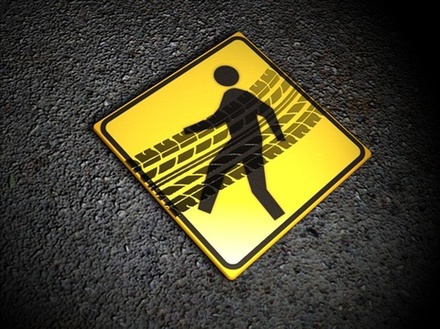 Florida, the third most populated state in the nation, has tepid or no laws to prevent cell phone or texting abuse, but at the same time, complaint ranking is No. 1 in pedestrian deaths. Leesfield & Partners has been clamoring and pushing the legislature for greater public protection from distracting cell phone/texting excesses. “We are a state of millions of smart phones and stupid drivers,” according to Managing Partner, Ira Leesfield, who has written, lectured and lobbied for change:
Florida, the third most populated state in the nation, has tepid or no laws to prevent cell phone or texting abuse, but at the same time, complaint ranking is No. 1 in pedestrian deaths. Leesfield & Partners has been clamoring and pushing the legislature for greater public protection from distracting cell phone/texting excesses. “We are a state of millions of smart phones and stupid drivers,” according to Managing Partner, Ira Leesfield, who has written, lectured and lobbied for change:
“Driving While on the Cell Phone-Punitive Damage Awards Should Come Through Loud and Clear.” The Brief, American Bar Association, Vol. 36, No. 4, Summer 2007. “Can You Hear Me Now – An Argument for Punitive Damages in Cell Phone Driving Cases.” Section Connection, Motor Vehicle Collision, Highway & Premises Liability, American Association for Justice, Vol. 13, No. 1 Fall/Winter 2006. “Make the Right Call.” The Miami Herald, March 13, 2013. “Driving + Cell Phones = Bad Call.” Trial Magazine, American Association for Justice, August 2010.
Leesfield, through the safety efforts of the American Association for Justice (AAJ) has taken the specific platform to underscore the neuro-impairment of a cell phone user while operating a multi-ton vehicle. Motor vehicle accidents should be tracked by the National Highway Safety Administration (NHTSA). Cell phone abuse has now found its way to large waterways, and the number of cell phone deaths and injuries by boat and connected with water sports is dramatically increasing.
Said Leesfield, “the other day, I observed a young woman on a moped with no helmet, in heavy traffic, texting on her cell phone as she navigated the congested roads of Miami Beach.” “The chambers of commerce, legislature and tourist industry should be in an uproar over this issue,” said Leesfield’s partner, Thomas Scolaro.
Now, with recent statistical findings that Florida’s pedestrians, including elderly pedestrians, are being knocked off like flies, one must examine the state’s refusal to pass meaningful cell phone legislation, consistent with most of the states and every other large state in America. California does not allow vehicle cell phone operation and most countries in Western Europe have a harder punishment for cell phone use while operating a vehicle.
Ira Leesfield, Chair of AAJ’s Resort Torts Litigation Group, and a frequent writer on the protection of travelers, points out that this has reached crisis proportions in Florida. State government should act, and act decisively, in the face of human and economic impact of a toothless cell phone law. In Florida, there can be no arrest or ticket for cell phone as a primary offense. The fine is ridiculously set at $35.00. As Leesfield points out, there is a larger fine for littering than there is for this ultra-hazardous operation of a vehicle at high speeds and being distracted. All of the medical literature is there, demonstrating that a driver using a cell phone is neurologically impaired to the same extent as a DUI driver.
Our firm, with offices throughout the state, is seeing an increased number of tourists and residents creating mayhem on the roads and now Florida Highway Patrol and police reports contain a section for notation of cell phone use during vehicle operation. The civil justice system is now ahead of the heavily lobbied communications mega industry and the courts and jury are now awarding punitive damages against the distracted and indifferent cell phone drivers.
 Florida Injury Lawyer Blawg
Florida Injury Lawyer Blawg


